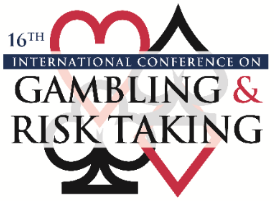Session Title
Session 2-3-F: Gaming Policy in Europe: Case Studies
Presentation Type
Event
Location
The Mirage Hotel & Casino, Las Vegas, Nevada
Start Date
8-6-2016 2:00 PM
End Date
8-6-2016 3:30 PM
Disciplines
Economics | Gaming and Casino Operations Management | Hospitality Administration and Management | Human Geography | International Business | Public Affairs, Public Policy and Public Administration | Sociology | Spatial Science | Substance Abuse and Addiction | Tourism and Travel
Abstract
Countries of Central European region (Czech Republic, Slovakia, Poland and Hungary) joined a new stage of their development after 1989. In these countries, there was a building process of capitalism which went in parallel with far-reaching structural economic and social changes; such as the privatization of economies, de-industrialization but also gamblerization of society. Clarifying this term, gamblerization, it could be described as the process of a continuous penetration of gaming facilities in the area accompanied by an increased availability and accessibility of gaming machines in the society. It is important to say that this process was particularly allowed owing to the liberal politics of the states. While during the communist period, when gambling was an intensely restricted and state-controlled sector (only lotteries and sports betting were allowed), in the 1990s the situation has changed dramatically and gambling, like the other forms of business, began to develop dynamically and spread in space due to the new conditions of building capitalism. The aim of our contribution is twofold. The first part of this contribution is focused on the evaluation of gambling development in the post-communist countries of the Central Europe including an outline of the specifics of the territorial development and attitudes of the post-communist society towards gambling. The second part of the contribution is focused on showing the differences in public policies which regulate gambling in these countries.
Keywords
gambling, Central Europe, regulation, post-communist countries
Streaming Media
Included in
Economics Commons, Gaming and Casino Operations Management Commons, Human Geography Commons, International Business Commons, Public Affairs, Public Policy and Public Administration Commons, Sociology Commons, Spatial Science Commons, Substance Abuse and Addiction Commons, Tourism and Travel Commons
Gamblerization of Post-Communist Society in Central Europe
The Mirage Hotel & Casino, Las Vegas, Nevada
Countries of Central European region (Czech Republic, Slovakia, Poland and Hungary) joined a new stage of their development after 1989. In these countries, there was a building process of capitalism which went in parallel with far-reaching structural economic and social changes; such as the privatization of economies, de-industrialization but also gamblerization of society. Clarifying this term, gamblerization, it could be described as the process of a continuous penetration of gaming facilities in the area accompanied by an increased availability and accessibility of gaming machines in the society. It is important to say that this process was particularly allowed owing to the liberal politics of the states. While during the communist period, when gambling was an intensely restricted and state-controlled sector (only lotteries and sports betting were allowed), in the 1990s the situation has changed dramatically and gambling, like the other forms of business, began to develop dynamically and spread in space due to the new conditions of building capitalism. The aim of our contribution is twofold. The first part of this contribution is focused on the evaluation of gambling development in the post-communist countries of the Central Europe including an outline of the specifics of the territorial development and attitudes of the post-communist society towards gambling. The second part of the contribution is focused on showing the differences in public policies which regulate gambling in these countries.


Comments
Attachment: PDF containing 19 slides
Audio recording of session is attached as a downloadable MP3 audio file, 71.96 MB